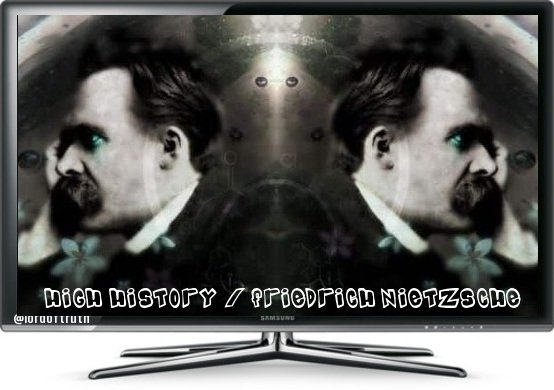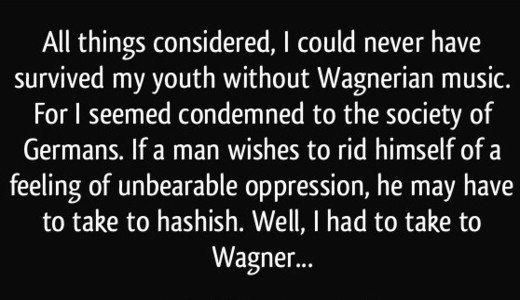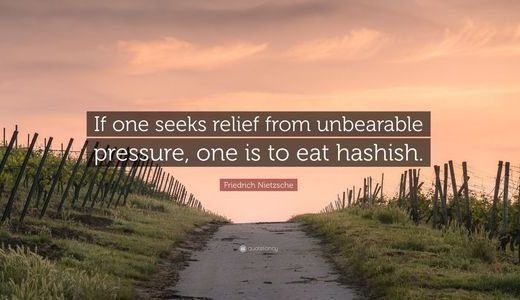
Nietzsche was very close with Wagner, also compared the effects that #Hashish has on the thoughts and emotions to Wagner’s music in a famous and often repeated quote:

Friedrich Nietzsche (1844-1900)

Friedrich Wilhelm Nietzsche (October 15, 1844 - August 25, 1900) is the most important philosopher of the nineteenth century, who has exerted a remarkable, often controversial influence on the philosophical thinking of generations, they followed.
He was born in a Protestant family, his father being a pastor. Even from his youth, he is confronted with the problem of faith in God and tends to atheism, which will later be reflected in his philosophical thinking. He studied philosophy at the University of Leipzig.

Nietzsche's philosophy considers the re-evaluation of the philosophy and art of Greece from the oldest historical period, to the detriment of classism, seen as an affirmation of rational vision.
Even as a young child, Nietzsche finds a retreat, a reconciliation in music. Friedrich receives piano lessons and at the age of 9 and he begins composing and writing poems.
After the first composition, Nietzsche focuses on studying the titans: Mozart, Haydn, Beethoven, Schubert, Mendelssohn-Bartholdy, Bach and Haendel.
Friedrich Nietzsche & #Hashish

Nietzsche wasn’t what you would call a pothead. Evidence show that he smoked hashish a few times in his life but experimented with other chemicals — including opium, potassium bromide, chloral hydrate.
Nietzsche ’s relationship with Wagner, like his relationship with intoxication, was rather complicated. At first he was deeply enamoured with the works of German composer, and they became friends.
His first book was dedicated to Wagner and it is where he introduces the Dionysian concept. Nietzsche ascribes "intoxication" to the Dionysian vision of the world, deriving this from the orgiastic nature cults of Thrace. Celebrating the "drive of springtime" and the Bacchanalia in honor of Dionysus, the god of "narcotic drink".
Nietzsche interprets the term "intoxication" not as narcotic stupor but, on the contrary, as a kind of "rush".
Intoxication is "ecstasy" taking place under the aegis of Dionysus as… the “liberator” — who undoes boundaries.

The Tincture / The Lonely Nietzsche
This narcotic aspect of Nietzsche’s life is neglected, it is the aim of this text to reveal the extent of his drug use and its effects, including a report of one of Nietzsche’s psychedelic trips. Furthermore, we shall see how this drug use inspired his philosophy and how his philosophy inspired this use.